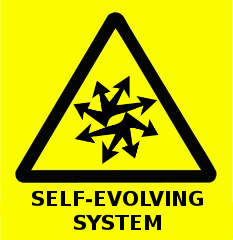 I have read hundreds of blog posts and articles reflecting on the latest edition of the Pew Research Center’s U.S. Religious Landscape Study (and I even contributed one such post in the days after the data was released). Since this body of research includes so much data with significance for my field of endeavor, I have benefited from the richness and diversity of these writings.
I have read hundreds of blog posts and articles reflecting on the latest edition of the Pew Research Center’s U.S. Religious Landscape Study (and I even contributed one such post in the days after the data was released). Since this body of research includes so much data with significance for my field of endeavor, I have benefited from the richness and diversity of these writings.
The Texas Faith Blog of the Dallas Morning News asked several faith leaders whether these findings suggest Christianity is becoming less important to Americans. The Rev. Dr. Daniel Kantner, Senior Minister of First Unitarian Church of Dallas, offers an answer that focuses on the growth of his own tradition amidst an overall decline in religious identification:
Unitarian Universalism is also growing for one reason; we evolve. My faith does not hold tightly to the old ways but interacts with the times we live in. While we are doing that we are speaking to things that matter in people’s lives and standing up for relevant justice issues in our communities. “Nones” come to our doors every day because they want to make meaning of their lives. They aren’t met with answers that were given thousands of years ago. They are met with answers grounded in our 500-year history but alive with the times. They are also welcomed for who they are not who we might want them to be. The churches that are in decline have failed to remain relevant and adapt. They have also stood against trends in society that want inclusion as a higher value as they support discriminatory practices against LGBT clergy and members, for example. I am proud of my faith that stands in the mainstream of support for genuine inclusion and justice for all. Only these approaches will save the church.
So What?
Progressive Christianity and Unitarian Universalism both embrace the evolution of religion. Over the last seven years (2007-2014) Progressive Christianity (as experienced in Mainline Protestantism) declined significantly while Unitarian Universalism experienced growth. After reading Kanter’s assertion I am left with many questions, including:
- Is Progressive Christianity as committed to evolving as is Unitarian Universalism?
- Does Progressive Christianity have an identity problem (a lack of clear marketing or sense of shared story telling to those beyond their constituents thereby causing some prospective adherents to wrongly assume it is similar to Evangelical Christianity or to conflate all forms of Christianity into one form and to presume such a form is anything but progressive)?
Share a bit about your congregation.
- Is it a part of Progressive Christianity? If so, is a commitment to evolving a core part of the congregational DNA?
- What does evolving look like in you congregation? More specifically, name a few ways your congregation has evolved in the last two years.